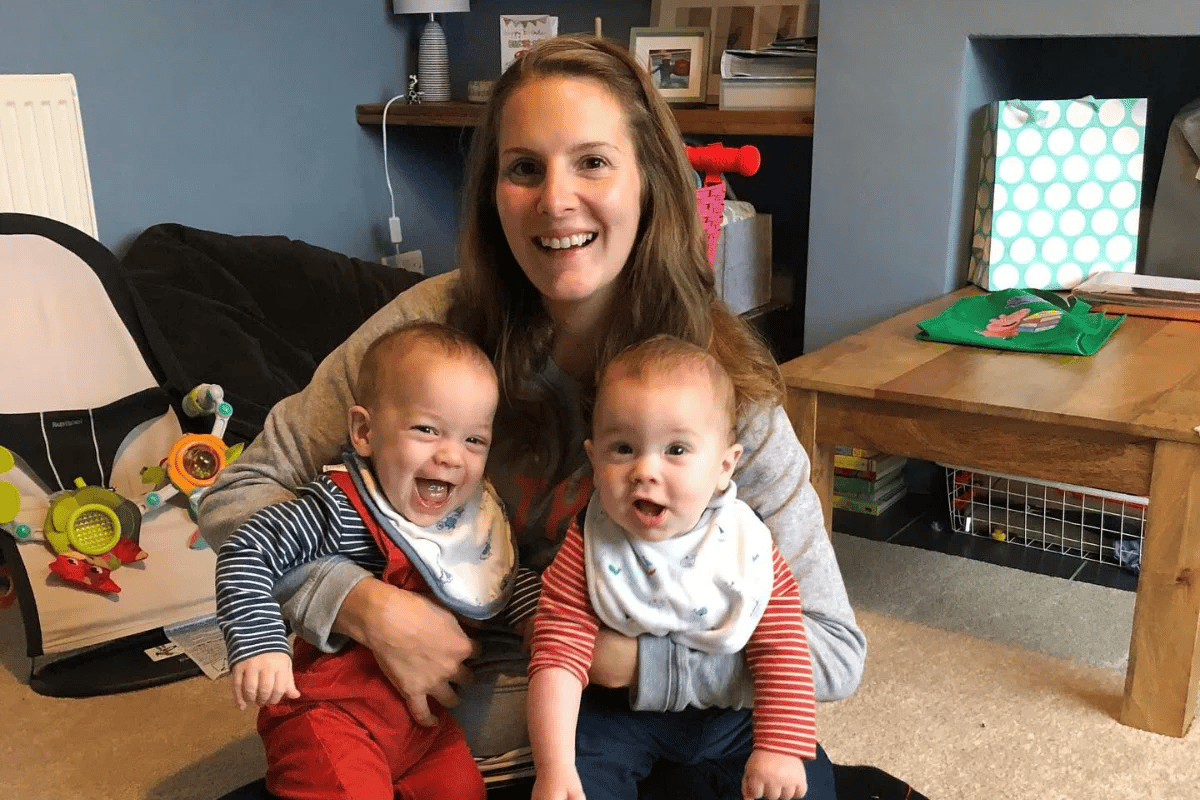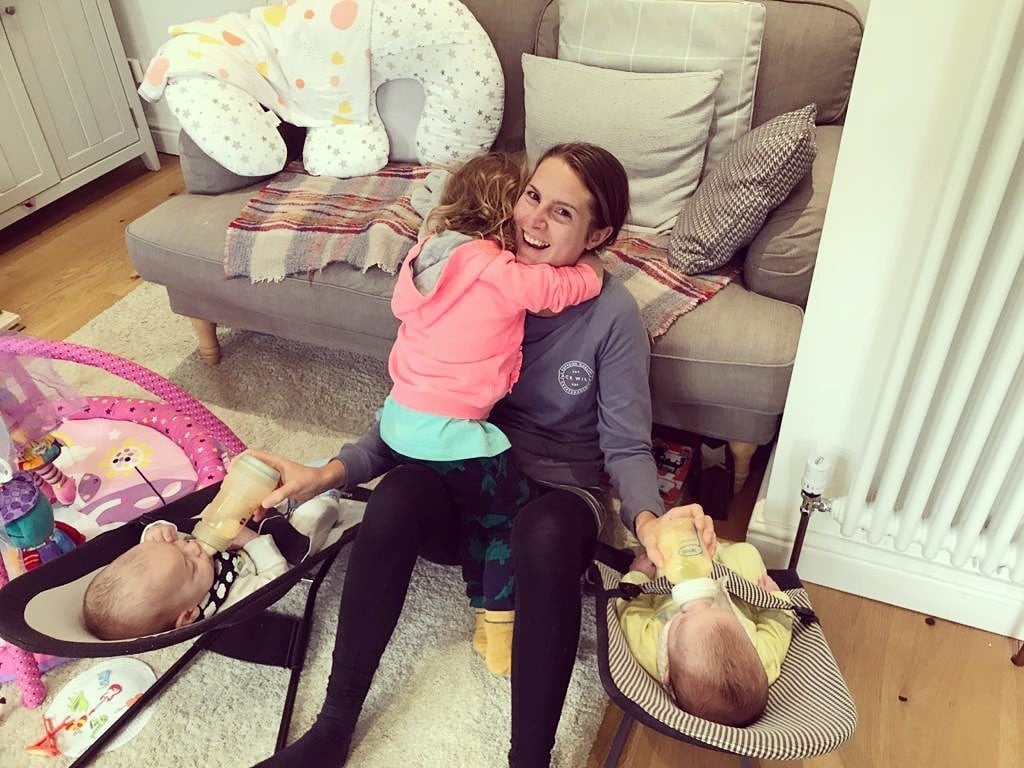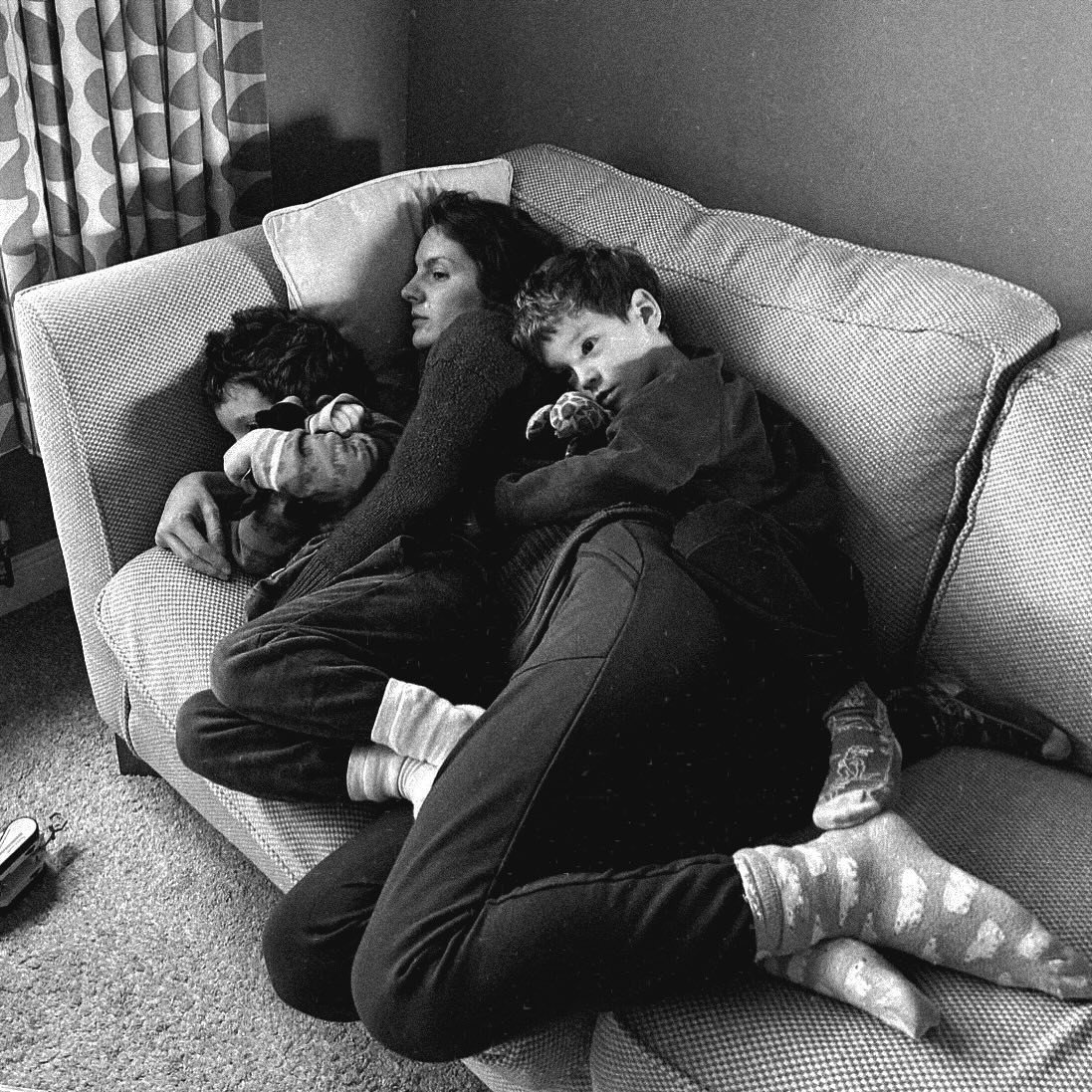
The beginning of Emily's health story is unusual.
Unlike other women with the same condition, she received her diagnosis before any symptoms arose.
"My mum had really early menopause, so I got investigated when I was 23," she explained to Mamamia.
At that time, Emily was diagnosed with Premature Ovarian Insufficiency (POI). This is defined as "a loss of normal function of the ovaries before the age 40".
Rather than explaining how this diagnosis would manifest, the doctor gave Emily one directive — "just have babies young!".
And she did, welcoming her first daughter when she was 25.
For four years, everything was fine. That was until the UK-based mum welcomed twins aged 29, and "things completely fell apart".
Watch the benefits of hormone replacement therapy for menopause. Post continues below.
"I had a whole host of symptoms postnatally that were really debilitating, for about a year," she told Mamamia.
Emily experienced nausea, vomiting, palpitations, hot flushes, night sweats, brain fog, overwhelm, mood changes, poor pelvic floor function, and severe heavy periods.






























































































